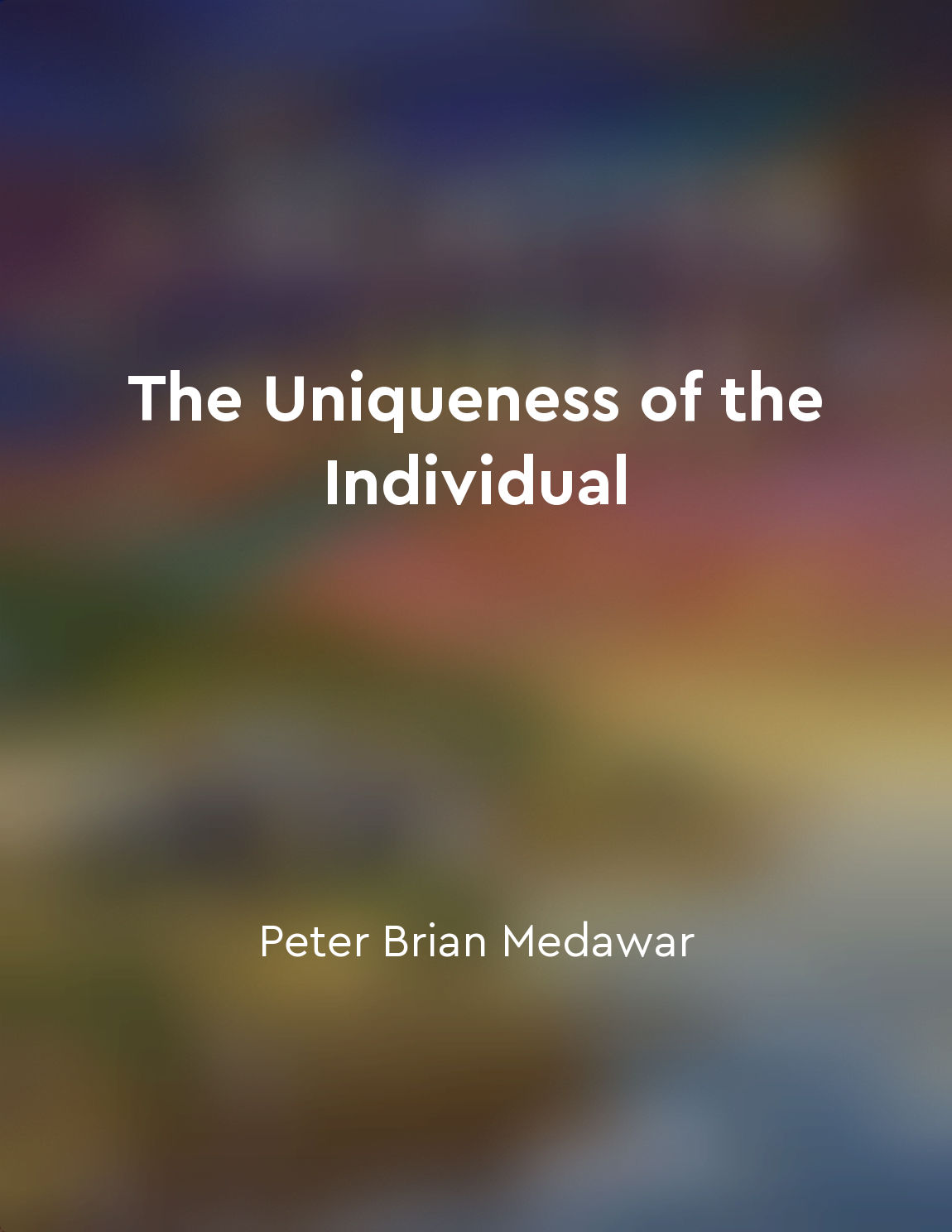Speciation leads to the formation of new species from "summary" of The Greatest Show on Earth by Richard Dawkins
Speciation is the process by which one species splits into two or more separate species. It is a fundamental mechanism underlying the diversity of life on Earth. When populations of a species become isolated from each other, either physically or reproductively, they can start to evolve independently. Over time, these populations may accumulate enough differences that they are no longer able to interbreed and produce fertile offspring. This is when speciation occurs, leading to the formation of new species. The concept of speciation is crucial in understanding how evolution works. Without speciation, there would be no new species to populate the ever-changing environments of our planet. It is through the process of speciation that new adaptations and traits emerge, allowing species to survive and thrive in their respective habitats. One of the key drivers of speciation is natural selection. As populations become isolated and face different environmental pressures, individuals with certain traits may have a higher chance of survival and reproduction. Over time, these advantageous traits can become more common in the population, leading to the divergence of two separate species. Speciation can occur through different mechanisms, such as geographic isolation, where populations are separated by physical barriers like mountains or bodies of water, or reproductive isolation, where individuals are unable to mate successfully due to differences in behavior, anatomy, or genetics. These barriers prevent gene flow between populations, allowing them to diverge and eventually become distinct species. The process of speciation is not always straightforward and can take thousands or even millions of years to occur. It is a gradual and complex process that is influenced by a variety of factors, including genetic drift, mutation, and gene flow. However, the end result is the same – the formation of new species that are adapted to their specific environments.- Speciation is a fundamental concept in biology that explains how new species arise through the process of evolution. By understanding the mechanisms of speciation, we can gain insight into the incredible diversity of life on Earth and the ways in which organisms have adapted to their surroundings over millions of years.
Similar Posts

The respiratory system helps in gas exchange
The process of gas exchange in the human body is essential for survival. The respiratory system plays a crucial role in this pr...
Genomic imprinting can influence behavior
Genomic imprinting can indeed influence behavior in fascinating ways. This phenomenon involves certain genes being switched off...
Cooperation promotes shared prosperity
Cooperation is a fundamental aspect of human society that has enabled us to achieve great things throughout history. When indiv...

Agnosticism is not a middle ground between belief and disbelief
Agnosticism is often mistakenly viewed as a middle ground between belief and disbelief. However, this is not the case. Agnostic...

Encourage autonomy
Encouraging autonomy is about giving people the freedom to make decisions and take control of their own work. When individuals ...
Copernicus proposed a heliocentric model
In the sixteenth century, Nicolaus Copernicus put forward the revolutionary idea that the Earth is not the center of the univer...
Health is influenced by lifestyle choices and genetic factors
Health is a complex concept that is influenced by a combination of factors, including lifestyle choices and genetic predisposit...

Personal experiences contribute to individual differences
The concept of personal experiences contributing to individual differences is a fundamental aspect of human development. Each p...
Genetic drift and gene flow contribute to evolution
Genetic drift and gene flow, two fundamental processes in population genetics, play crucial roles in shaping the course of evol...
Genetics plays a role in determining physical characteristics
Genetics, a code inscribed in every human cell, exerts a profound influence on our physical traits. This code, comprised of DNA...

